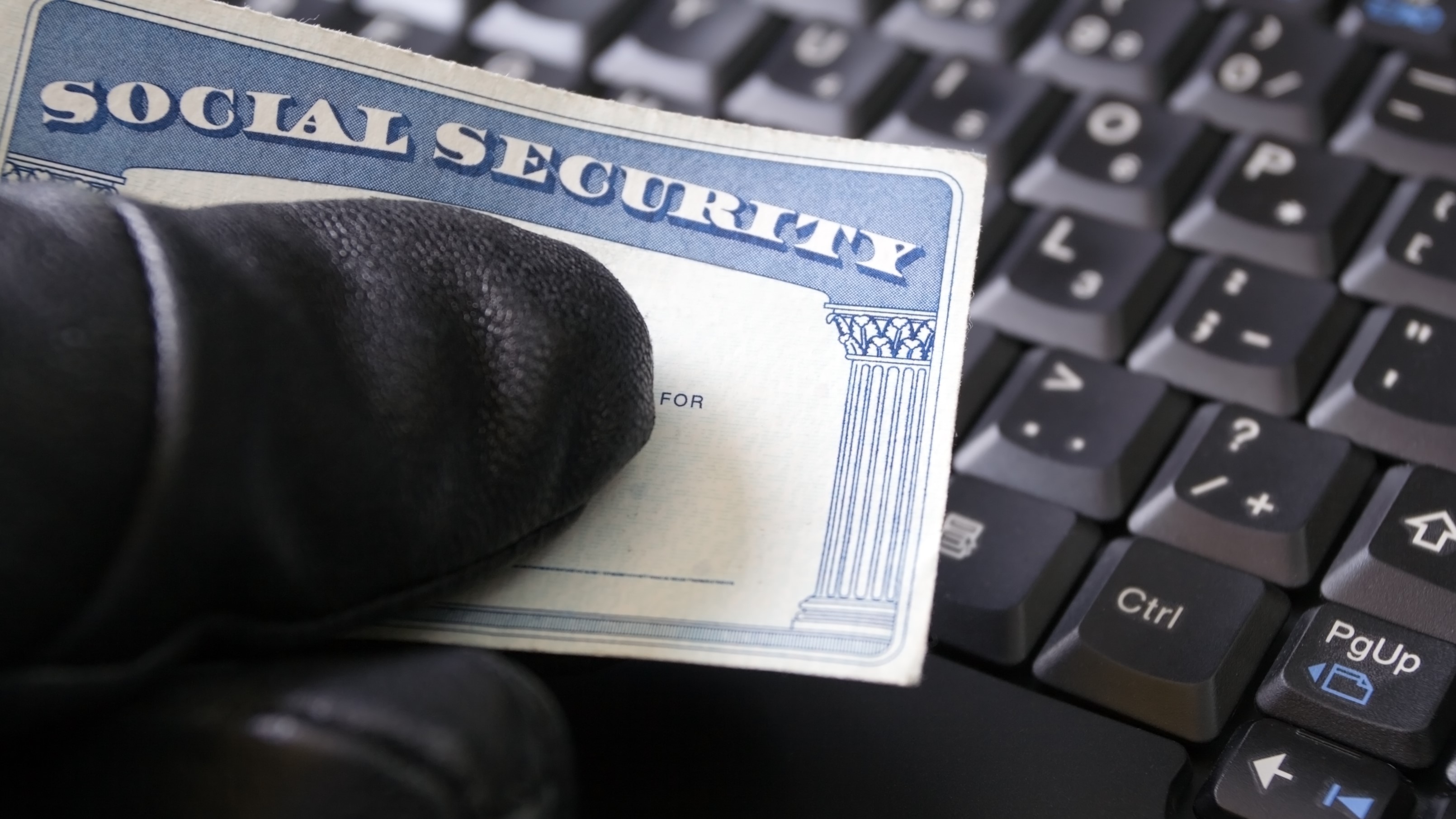Your Social Security number is a literal gold mine for scammers and identity thieves — here’s how to keep it safe
Keep the most important number in your life safe and secure with these tips

A Social Security number (SSN) is one of your most valuable personal assets. You’ll use it to open a new bank account, apply for a mortgage, file your taxes, and even to find a job. You could say this 9-digit number - which most of us received at age 12 - makes the world work. Well, at least in the United States.
While that might seem like an exaggeration, the truth is that we use a SSN on many official forms during the course of our lives. Want to get married? In several states you need a valid SSN to make it all legal. Trying to improve your credit? At a most basic level, a SSN is what determines your identity and can be a major factor in obtaining a loan.
That’s why it’s so important to protect your Social Security number from identity theft. Experts tell Tom’s Guide that hackers can access a vast database of SSNs these days and, for only $10, buy one and start using it - name, address, and number included.
That’s a bit frightening, and one expert even said artificial intelligence and computer hacking methods have improved to such a great extent that it might not even be possible to protect your SSN from hackers anymore.
That said, there are some practical steps you can do to protect your SSN from prying eyes. Some are a little more obvious than others but might impact your daily routine, while a few tips are much more proactive and even inconvenient for most of us but still valid.
Keeping your Social Security number safe

Experts say the most important first step in protecting your SSN from hackers and thieves is to not carry the card with you at all. In fact, security experts have long advised against writing down passwords, using sticky notes, and carrying Social Security cards.
If a hacker steals your wallet or purse and the SSN card is inside, it becomes that much easier to use the card for fraud. It means the name and number are known to be valid and not just copied from the dark web, and it also clues the hacker into the fact that the person who owns the card is now exposed - e.g., the card owner might not even know the card is lost.
Memorizing a SSN or password is one of the best security precautions you can make.
What should we do instead? That’s the hard part: We need to memorize the number. This doesn’t just apply to our own number but a spouse and kids as well. Memorizing a SSN or password is one of the best security precautions you can make.
Get instant access to breaking news, the hottest reviews, great deals and helpful tips.
Jon Clay, the VP of Threat Intelligence at Trend Micro, says the risk of carrying a Social Security card is too high. “If you lose your wallet or it gets stolen, someone could easily use your SSN to open credit accounts, take out loans or even commit other forms of identity theft,” he says. “It’s better to memorize your number and keep the physical card stored somewhere safe.”
Apart from that, it’s also important to avoid writing the number down on scraps of paper or even in one of the best note taking apps like Google Keep or sticky notes in Windows and Mac.
Keeping your Social Security number secret from others

One reason a SSN is so hard to protect is that hacking has become far more common and lucrative.
Although the most important step is securing your Social Security card, it’s also important to think about how you are using a SSN online and the purpose behind handing over the number.
For example, if you’re prompted at a website to type in your Social Security number but you are not applying for a loan or working on your taxes, it might be best to find a different way to prove your identity. There may even be ways to provide the number by phone instead if you are applying for a loan or filling out a job application.
Sometimes, it is a convenience factor - the fastest way to prove your identity might be to type in those nine digits. However, it is also one of the most obvious attack vectors, especially if the site is not secure.
“When you do need to use your SSN online, make sure you’re being smart about it,” says Clay. “If you’re entering it online, check that the website is secure, look for “https” and a padlock symbol in the browser. If you have to share it over the phone, make sure you’re in a private, secure place and only give it to trusted parties who absolutely need it. When mailing documents with your SSN, use certified mail to ensure they’re delivered safely.”
Protecting your Social Security number is harder than ever

Protecting your Social Security number is not easy. Even if you memorize the number, you will still need to hand over the number if you apply for a loan or fill out a job application.
Roger Grimes, a spokesperson for the security training company KnowBe4, told me we now live in an age where it is more and more likely you will have your SSN stolen.
"I'm not sure there is anything anyone can do to protect their Social Security number,” he says. “I'm pretty sure everyone who isn't a newborn has had their SSNs stolen multiple times over the last decade. Is there anyone's SSN that isn't on the internet or dark web? I can look up anyone's SSN for a $10 monthly fee on a commercial crash dump website I belong to and there are hundreds of those sites, most of them free to anyone.”
One reason a SSN is so hard to protect is that hacking has become far more common and lucrative. Security firm Hadrian released a report on 2025 hacking trends that suggests the rise of AI botnets will create more disruption than ever before: “Hadrian believes that in 2025 disruption due to DDoS attacks by IoT botnets and the number of incidents originating from an IoT vulnerability will reach an all-time high. There will also be more attacks by low skill hackers that are looking to gain access to corporate networks, which they will then sell on the dark web.”
“I think the best you can do is monitor your credit record and move quickly if you see fraud,” says Grimes, who suggests being proactive about credit freezes if you suspect your SSN is compromised. “The ultimate answer is that people's SSNs were never intended to be a primary form of identification, and should never be used to authenticate someone. SSNs were created for accurately tracking SSA payments. The idea that many American businesses collect them and use them as some form of authentication is insane, unintended, and should not be done!"
Staying one step ahead of identity thieves

If you’re very concerned about protecting your Social Security number (which you should be), then it’s absolutely worth investing in one of the best identity theft protection services.
As their name suggests, these services can help you recover your identity as well as any funds lost to fraud as the result of identity theft. Unfortunately though, identity theft protection only works if you sign up before a major security incident, not the other way around. So keep this in mind if you’re on the fence about adding another monthly subscription to your budget.
Even if you're more likely to have your SSN stolen than ever before, by following the guidance here and practicing good cyber hygiene as well as situational awareness, you'll be one step ahead of identity thieves.
More from Tom's Guide
- Google is making it easier to see if your info is on the dark web — here’s how
- 123456 is the world's most popular password – again
- 5 iPhone settings you should always shut off — because they’re a security nightmare
John Brandon is a technologist, business writer, and book author. He first started writing in 2001 when he was downsized from a corporate job. In the early days of his writing career, he wrote features about biometrics and wrote Wi-Fi router and laptop reviews for LAPTOP magazine. Since 2001, he has published over 15,000 articles and has written business columns for both Inc. magazine and Forbes. He has personally tested over 10,000 gadgets in his career.
You must confirm your public display name before commenting
Please logout and then login again, you will then be prompted to enter your display name.

